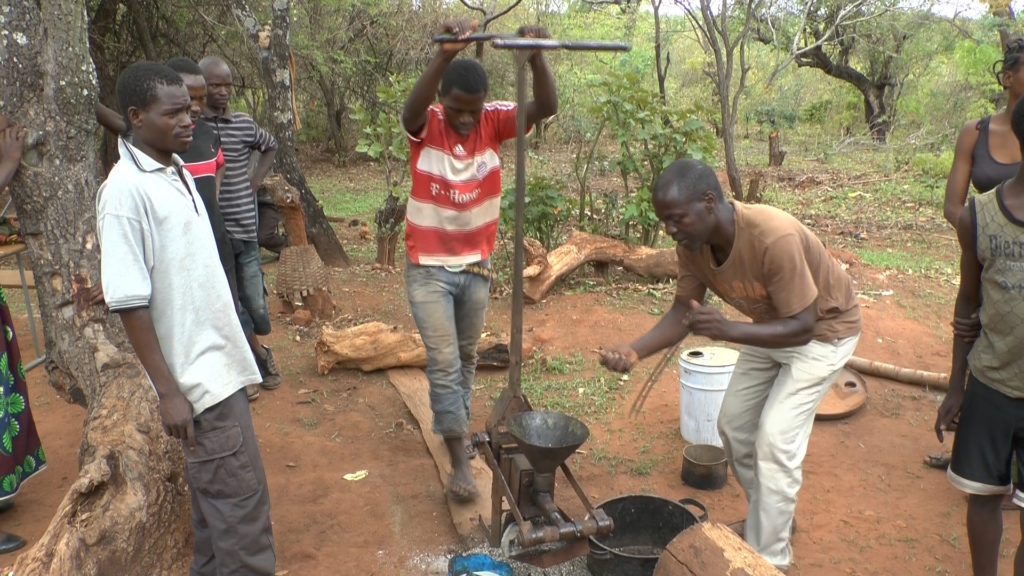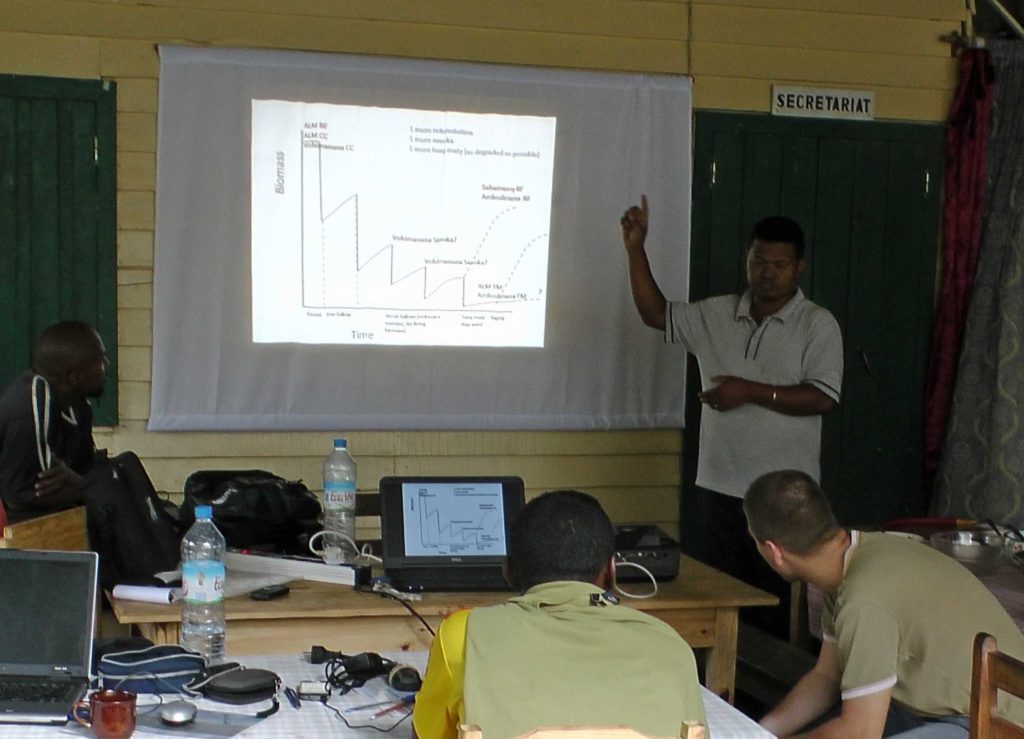
Ten years ago, in early October 2010 a group of nearly 130 researchers from around the world met in Edinburgh, Scotland for the very first scientific meeting of a new global development research programme funded by the UK Government. This new initiative, the UK’s Ecosystem Services for Poverty Alleviation Programme was not well-known at that time. It was seen by many to be an experiment in its own right, in that it was designed from the start to be global and interdisciplinary linking the environmental and social sciences, whilst promoting more equitable partnership between researchers in developed and developing countries. At that time, I had the privilege welcoming that small group of researchers to Edinburgh as ESPA’s first Director.
Much has been achieved in the following ten years, both in terms of world class research and development impact, but also in terms of the growth of a vibrant community of international researchers and development practitioners who continue to build ESPA’s legacy. We have also learnt much more about the design and implementation of successful development-focused research.
Interdisciplinarity and diversity
One of the notable aspects of the first ESPA meeting was the diversity of contributions and contributors. Of the 130 participants, 50 came from institutions based in developing countries and the spread of academic disciplines was truly interdisciplinary. By the time the programme closed in 2018, it had funded interdisciplinary projects in over 50 countries and directly supporting at least 1000 researchers. The benefits of the focus on diversity and interdisciplinarity is one lesson that ESPA has brought to development research.

Growth of More Equitable Partnerships
The growth of the ESPA research community was impressive as the programme expanded. ESPA was also committed to creating opportunities for partners from institutions in developing countries to play a significant role in the design, implementation and application of research. Developing country researchers provided leadership, acting as Principal Investigators on a number of grants, and as first authors on an increasing proportion of ESPA’s academic papers. There was also a focus on promoting access to this new knowledge through growth of open-access publication.
One of ESPA’s innovations was to use information about publications and partnership to describe the academic impact of the programme and the way that more equitable ways of working in partnership developed along with the programme. As with most programmes, this type of reporting ended along with the programme in 2018.
It is well known that some of the most significant impacts of development research occur in the period of up to five years after direct funding ceases. With ESPA’s 10-year anniversary approaching a new system to capture data describing the programme’s academic impact and approaches to equitable partnership was developed using public ally available sources of data. The resulting DevPubMetric system has now been collected updated information from ESPA since June 2020. Further information and examples are available on this website.
The initial outcomes of this analysis of ESPA’s activities are now available as an online report of ESPA’s Academic Impact. This online document also includes results showing how partnerships developed to embrace the participation of developing country researchers.
Some highlights emerging from the analysis:
- ESPA’s first publications appeared in 2009 based on a set of scoping projects that predated the main programme. At that time there were, no authors involved from low-income or lower middle-income countries. By 2020, this has changed with 30% of authors coming from these groups including 11% of authors affiliated to institutions in low-income contexts;
- Over 20% of ESPA’s publications have first authors based in developing country organisations (low or middle-income). By October 2020, ESPA has over 700 publications that can be found listed on the Scopus database of academic publications;
- ESPA’s publications have now involved a total of over 16,000 researchers as authors. They are affiliated with nearly 4,000 institutions in 130 countries.
The growth from that small group of 130 and their colleagues to a global community of nearly 16,000 is impressive, but it is important to avoid either compliancy or self congratulations. The same data, show that about 40% of ESPA’s publications had no developing country authors and the overall authorship was still dominated by institutions in high-income countries, exceeding 60% in every year of the programme.
Changes in the proportions of the affiliations of all authors on ESPA publications currently recorded on Scopus. More detail available on ESPA’s Academic Impact
Focus on Quality
One of the concerns that some UK researchers expressed at the first ESPA meeting in 2010, was their perception that research designed to address global development challenges would need to be of “lower quality” and less academic impact, often measured as citations.
ESPA was designed to produce world-class research and then promote innovation to turn that research into results benefitting some of the most vulnerable people in developing countries. As I opened the event in 2010, I made the point, that I felt major global challenges require the best world-class interdisciplinary research to be combined with innovation to build impact.
Over the last ten years, this is exactly what ESPA projects and researchers have done. The data recently collected from Scopus, the world’s most comprehensive database of high-quality research outcomes tell ESPA’s story. Over the last ten years up to 1 October, 2020, the ESPA programme has produced 711 academic publications which in turn have been cited just over 26,500 times. These numbers continue to increase and the most up to date information are shown below (updated on the first day of each month).
Cumulative total of ESPA’s publications and citations. (showing publications captured by the Scopus system).
Further analysis of these data has shown the ESPA publications have tended to have around twice the academic impact (citations) of the average within the same discipline. This highlights that those concerns raised by some in 2010 were unfounded. Indeed, well designed interdisciplinary research addressing major challenges can have more academic impact than more conventional topics.
It Takes Time!
Researchers working at the forefront of challenging research areas such as ESPA often feel that they are under pressure to produce rapid results. ESPA was able to have some very significant development impacts early in the programme, but on closer examination most of these were from ESPA projects building on previous research, sometimes spanning back for over a decade.
The data describing the flow of publications (see below) show a slow increase in the number of publications up to a peak in 2018 when the programme officially closed. Even in 2018, some publications were not recorded by the programme because of the inherent time lag of academic publication.
The key message here is that it takes time for new knowledge to be produced and disseminated. As the process to build development impact needs to build upon this new knowledge, it is reasonable to expect, that some of ESPA’s significant impact on the lives of poor people in developing country is still to come.
ESPA’s publications (number per year) and the proportion of these that were published in a full open access format. The increase in the proportion of papers published as open access was an objective of the programme and represented a culture change for both researchers and research funders. These data show that changing research culture can take at least as long as building impact.
How Does ESPA Compare with Other Development Research Programmes?
ESPA in 2010 was seen to be an experiment in its own right, in terms of building a world-class research programme that joined disciplines and fostered a new environment of collaborative delivery that brought together researchers from around the world and three very different research funders. One of the first challenges and luckily successes was to build a distinctive ESPA “culture” and approach that framed the next ten years of activity and arguably beyond.
ESPA’s approach to commissioning research, building teams and building impact has influenced the way a number of subsequent programmes have been designed and implemented. The UK’s Global Challenges Research Programme is one example. There are also a growing number of similar programmes supported by other nations and funders, and indeed some that predate ESPA and informed ESPA’s design.
The question of how do these programmes compare is highly relevant as increasing amounts of research funding is allocated to address the UN’s Sustainable Development Goals.
I would argue that there has probably not been enough lesson learning and comparison between programmes. For this reason the approaches used to review ESPA’s progress over the last ten years is currently being adapted to apply to a number of other similar programmes. In some cases, this is relatively easy, in others the lack of information in the public domain makes it nearly impossible. This research is ongoing and the next set of results will be published during 2021.
The initial results are fascinating are already showing that the way the development or grand challenge research is designed and implemented may be as important as the research questions programmes seek to address.
From my perspective, the discussion above illustrates that development research is itself a social process. I feel that effective development research needs to adopt a culture that delivers a relatively rare combination that addresses clearly defined real-world problems with an approach defined by interdisciplinarity and diversity, combined with growth of more equitable global partnerships, a focus on quality and sufficient time and innovation to make a difference.
I hope that ESPA’s legacy over the next ten years, includes continuing to challenge the way that research is undertaken, not just the research we do.
